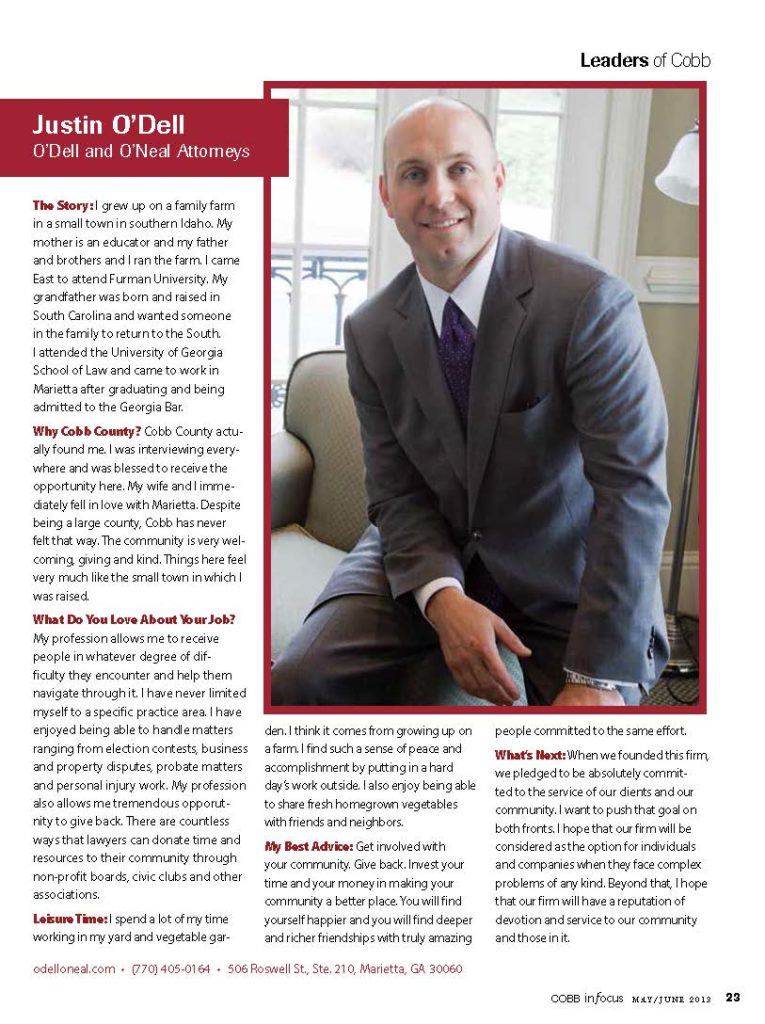Last month, we came to the conclusion that Dick and Jane could be facing the situation of dealing with the filing of a Guardianship and Conservatorship over Dick’s Mother. The process sounds intimidating and costly. If a fight breaks out within Dick’s family, it can prove to be emotional and expensive. However, if the family stays on the same page and works together, the Probate Court is designed to facilitate the situation while protecting the interests of the Mother.
Before we proceed, we must establish a few definitions:
1) Ward – The Ward is the person who is declared incapacitated.
2) Guardianship – A Guardian is appointed to make decisions about the health and welfare of a Ward. These decisions may touch on financial considerations, but a Guardian does not have control of a Ward’s assets or finances. Some decisions are allowed without Court approval and others require permission of the Court.
3) Conservatorship – The Conservator has control of the Ward’s finances and assets and makes decisions about the Ward’s estate. The Conservator submits an annual budget called an “Asset Management Plan” along with an Inventory of the Estate and a Return of Receipts and Disbursements.
There are two ways to file for Guardianship and Conservatorship. The processes are the same, but it is not required that an individual file for both. Circumstances and the individual situation may warrant seeking one without the other.
The first type of Petition requires the signature of a related family member and a physician or medical doctor who has recently examined the Ward. The second type of Petition may be brought by two family members. In either instance, all of the Petitioners are required to swear that the Ward lacks sufficient capacity to make or communicate significant responsible decisions concerning his/her health or safety (Guardianship) and lacks sufficient capacity to make or communicate significant, responsible decisions concerning management of his/her property (Conservatorship).
Once filed, an evaluator will be appointed to make a brief medical evaluation of the Ward to determine whether or not the allegations of the Petition have merit. The Ward will also be appointed an independent attorney and, sometimes, a Guardian ad Litem to look after the interests of the Ward.
The spouse and all of the children of a Ward are given notice and the right to participate in the proceedings. If minor children are involved, an attorney or guardian ad litem will be appointed to represent their interests.
If the matter is contested, either as to the issue of capacity or as to the issue of which person should be Guardian and/or Conservator, a full evidentiary hearing will be held. If all parties, including those appointed for the Ward, consent that the action is prudent and necessary, then the hearing is much more truncated.
If granted, the Probate Judge has the power and authority to grant the Guardian and Conservator any number of rights and powers and to take any number of rights and powers away from the Ward. These decisions are driven by the facts and circumstances of the case and based on a desire to preserve the independence and rights of the Ward, but also to protect the welfare and estate of the Ward. Even if the Conservator is granted all of the available powers and the Ward is deprived of the same, some transactions, such as selling property of the Ward always require the permission and approval of the Probate Court.
The Guardianship and Conservatorship can be terminated if the individual regains capacity. Any interested person, including the Ward him or herself, can initiate a Petition for Restoration of Rights.
Guardians and Conservators can be compensated for the service. Guardian’s compensation is determined by the Court and Conservator’s compensation is based on a percentage of the assets and receipts and disbursements involved.
Guardians and Conservators become “fiduciaries” of the Ward. Under Georgia Law, a fiduciary is bound by the highest standards of loyalty, honesty and fair dealing to their beneficiary. If a Guardian or Conservator breaches a fiduciary duty, they are liable to the Ward and can be order to appear before a Probate Judge to account for their actions. Other agencies, such as the Internal Revenue Service, also have provisions whereby a Guardian or Conservator can become liable for failure to property act on behalf of another.
Guardianships and Conservatorships are an important function in dealing with the aging process. Even the most carefully planned estate with Powers of Attorney and Health Care Directives in place can fall short. Most notably, these documents merely extend rights to a third party, but do not cut off the rights of the Ward. For situations in which a family needs to protect a loved one from themselves or from predators and scammers preying on the elderly, a Guardianship and Conservatorship is the only possible route. Finally, Guardianships and Conservatorships are also necessary in order to deal with a disabled child who is turning 18 or when tragedy strikes and a loved one is suddenly injured in a sudden event like a motor vehicle accident or contracts a disabling medical illness.
To learn more about this area, the Probate Court Council of Georgia has published a very helpful guidebook which provides a more expanded discussion. You can find the handbook here: http://www.sji.gov/PDF/GA_Handbook_for_Guardians.pdf.








